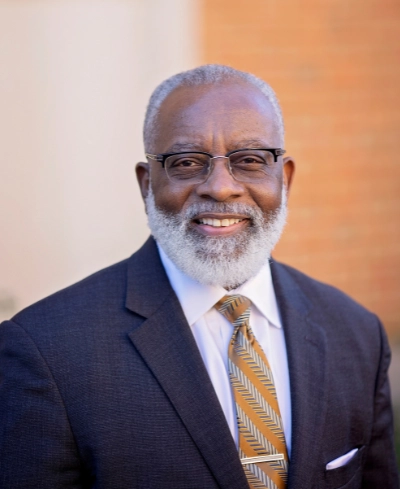
As Christians, we do not hear much taught or preached about growing in the likeness of Christ or being conformed to His image—although we hear a lot about God’s love and goodness. We must ask ourselves, what does it mean to grow in the likeness of Christ? Is it possible to be like Christ in today’s society? Why should we strive to be like Christ in His love and suffering for others?
In Paul’s writing to the church in Rome, he makes a clear statement regarding the believer’s predestination to be conformed to the image of Christ (Rom 8:29). God desires that believers grow in the likeness of His Son. For many, when Jesus is accepted as savior, we feel we have satisfied what the Lord requires of us, thus remaining as carnal Christians and never being transformed into the image of Christ. George Barna, research analyst and author of Maximum Faith concludes, “Most Americans who confess their sins to God and ask Christ to be their savior . . . lives almost indistinguishably from unrepentant sinners, and their lives bear little, if any, fruit for the kingdom of God.”[1]
As believers, who profess the Lordship of Jesus Christ, we are mandated to be imitators of God and to represent him as light to the unbelieving world. To live a life where Jesus is Lord, we must be willing to submit our will and desire to His authority. The Lord Jesus has promised not to leave us comfortless but that He would give us another Comforter who would be with us and live in us. The Holy Spirit will be present to “walk alongside” us, and He will continue to reveal God’s truth and bring about holy living to those who will submit to the Lordship of Jesus Christ. He is the empowering presence on which the Christian life must be dependent.
Spiritual formation is a work of the Holy Spirit in the believer’s life as He works to conform us to the image of Christ. The apostle Paul addresses the church at Corinth by saying, Now the Lord is the Spirit, and where the Spirit of the Lord is there is freedom. And we all, with unveiled face, beholding the glory of the Lord, are being transformed [emphasis added] into the same image from one degree of glory to another. For this comes from the Lord who is the Spirit (2 Cor 3:18). According to Walter Bauer, the Greek word for transformation, metamorphoó means to change inwardly in fundamental character or condition, be changed, be transformed. He further states, “Christians progressively take on the perfection of Jesus Christ,”[2] thus an ongoing process.
As human beings, it's natural for us to desire control over our lives. However, as we pursue Christ-like qualities, we may discover that He challenges us by subjecting the power we crave to crucifixion. In Paul’s letter to the Galatians, he wrote, “I have been crucified with Christ. It is no longer I who live, but Christ who lives in me…” (Gal 2:20). Paul’s co-crucifixion with Christ is the very life that is required of all believers who desire to be conformed to the image of Christ.
For many of us, the crucified life requires more than we are willing to pay. Jesus told those following him, “If anyone comes to me and does not hate his own father and mother and wife and children and brothers and sisters, yes, and even his own life, he cannot be my disciple. Whoever does not bear his own cross and comes after me cannot be my disciple (Lu 4:26-27). This may seem harsh; however, the Lord has set the requirements for discipleship, which can only be lived by God’s grace.
The Lord has blessed us with the power and ability to live a grace-filled life. For, we are no longer under the law of sin and death, but now we live by the law of the Spirit of life that is in Christ Jesus (Rom 6:14; 8:2). As we realize how helpless we are to live the life of Christ in our strength, we begin to surrender to the power of God’s Spirit, which has been given to every believer. Only Christ can live His life through the believer, which is done through the Holy Spirit.
The Spirit plays an active role in the spiritual formation of those He inhabits. As Christians, we must be indwelt with the Spirit to carry out the will of God. The Lord works through the Spirit to bring members of the body of Christ together to do the work of the ministry. According to Frank Thielman, “If Gentiles are to come into God’s people . . . a radical transformation must begin in their lives to make them appropriate dwelling places for God’s Holy Spirit—they need to be holy.”[3]
In John’s gospel, Jesus told the disciples that they must abide in Him to bear fruit (John 15:15:1-9). This new life in Christ that we strive to live will be manifested as we remain connected to the true vine of life. Would it not seem logical that if we are connected to the vine of life, the nature flowing through the vine will also be displayed in the branches? Although we may be connected, this does not mean we are not on a journey in the transformation (sanctification) process. Conformity to the image of Christ is a progressive journey. A journey that presents the believer with many challenges—some can even be hardships. Nevertheless, our sovereign Lord is keenly aware of the transformation process.
As we continue in the process of being conformed to the image of Christ through the journey of life, the ministry of Christ will continue on the earth. Our heavenly Father will be glorified, and others will be drawn to God through our testimony of His graciousness.
 Ronald Sterling joined the Beeson faculty and staff as a part-time lecturer and director of student services in 2017. In this part-time role, Sterling teaches courses in the areas of spiritual formation and pastoral ministry. As director of student services, he will give special attention to matters of racial reconciliation and student retention. An ordained minister in the African Methodist Episcopal denomination for twenty years, Sterling helps to maintain and forge stronger ties with this important constituency and also assist in recruiting prospective students. Sterling is the pastor of Saint John AME Church in Birmingham. For several years, he also has provided chaplaincy services to the UAB Health System in Birmingham as a PRN Chaplain. Sterling is married to Kim, and they have three children and eight grandchildren.
Ronald Sterling joined the Beeson faculty and staff as a part-time lecturer and director of student services in 2017. In this part-time role, Sterling teaches courses in the areas of spiritual formation and pastoral ministry. As director of student services, he will give special attention to matters of racial reconciliation and student retention. An ordained minister in the African Methodist Episcopal denomination for twenty years, Sterling helps to maintain and forge stronger ties with this important constituency and also assist in recruiting prospective students. Sterling is the pastor of Saint John AME Church in Birmingham. For several years, he also has provided chaplaincy services to the UAB Health System in Birmingham as a PRN Chaplain. Sterling is married to Kim, and they have three children and eight grandchildren.
[1] George Barna. Maximum Faith: Live Like Jesus. (Fedd and Company, Inc: Austin, 2011). 29.
[2]Walter Bauer, A Greek-English Lexicon of the New Testament and Other Early Christina Literature (BDAG) 3rd ed., ed. Frederick W. Danker (Chicago: The University of Chicago Press, 2000), 639.
[3] Frank Thielman, Ephesians (Baker: Grand Rapids, 2010), 705.
